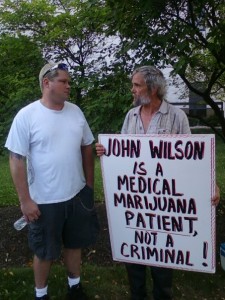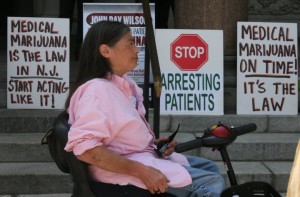 7/26/2011 – Medical marijuana legislation is nothing new to New York or Connecticut. A serious push was seen in Hartford earlier this year and Albany has considered bills for over a decade. Despite considerable public support and a growing choir of patient voices, neither state has passed a law. Now, statements from New Jersey’s conservative Governor Chris Christie have elected officials in NY and CT looking at their future cannabis options.
7/26/2011 – Medical marijuana legislation is nothing new to New York or Connecticut. A serious push was seen in Hartford earlier this year and Albany has considered bills for over a decade. Despite considerable public support and a growing choir of patient voices, neither state has passed a law. Now, statements from New Jersey’s conservative Governor Chris Christie have elected officials in NY and CT looking at their future cannabis options.
Rhode Island, Maine and Vermont have working medical cannabis programs and even some open dispensaries. But Gov. Christie was a federal prosecutor for seven years prior to being elected governor. During a July 19th press conference about medical marijuana he offered an insightful discussion of the various “intersections” between state and federal laws.
It is important to note that NY and CT are considering very narrow and limited bills, modeled after New Jersey.
The Hartford Advocate reported on 7/25
A bill to legalize medical marijuana in Connecticut kind of withered away in the 2011 General Assembly, never reaching a vote in the state House or Senate. The bill’s supporters say the intense focus on state budget problems and concerns about how to grow and regulate medical pot created roadblocks for a bill similar to one that passed and was vetoed by Republican Gov. M. Jodi Rell several years ago.
Gov. Dannel Malloy supports legalizing medical marijuana in Connecticut. His top criminal justice adviser, Michael Lawlor, says he expects new legislation modeled on the systems in New Jersey, Rhode Island and similar programs in other states will pass the legislature in 2012.
Lawlor says it’s very unlikely the new bill will be anything like the freewheeling medical pot program in California. “They’re selling pot brownies in the shop windows out there,” says Lawlor. read full
New York Governor Andrew Cuomo made a slight shift in his medical cannabis position. Because he was so staunchly against the issue, his comments are notable. On 7/25 the Elmira Star-Gazette reported:
Cuomo, a Democrat, has not supported medical marijuana in the past, and he said he has not changed his position. He did, however, leave the door open on the issue.
“We have proponents of the policy. I know New Jersey’s looking at it. We have opponents of the policy,” he said. “We’re talking to both sides of the issue, if you will, and we’re reviewing it, but we don’t have a final position.”
The governor said that while he hadn’t changed his stance, “We’re always learning and listening and talking and growing, we hope.”
New Jersey became the 16th state to legalize medical marijuana under legislation signed by Christie’s predecessor.
Legislation to allow patients with debilitating illnesses to use marijuana if they are registered with the state and receive a prescription from their physician has passed the Assembly before but never the Senate. Under the bill, sponsored by Assemblyman Richard Gottfried and Sen. Thomas Duane, both Manhattan Democrats, hospitals and pharmacies would do the bulk of the dispensing. The maximum amount that could be dispensed would be 2.5 ounces. read full
Actually NJ was the 14th state to pass a medical marijuana law when legislation was signed in 2010; Arizona and Delaware were #15 and #16.
Will these heavily restrictive schemes for marijuana actually work for seriously ill patients? That remains to be seen.
What is more certain is that regulated medical cannabis growing in the Garden State – with the blessing of a former US Attorney – could have a significant influence on New York and Connecticut.







